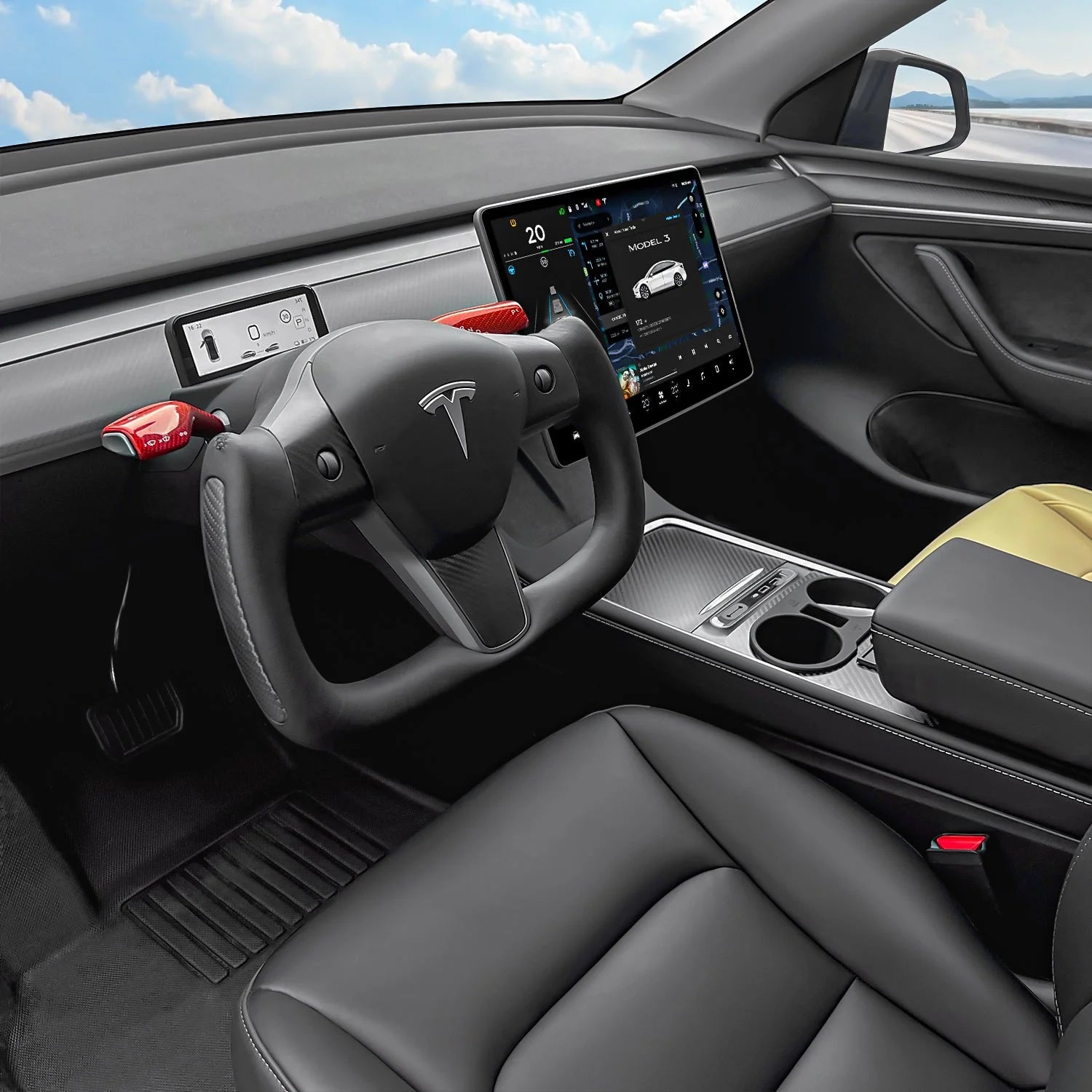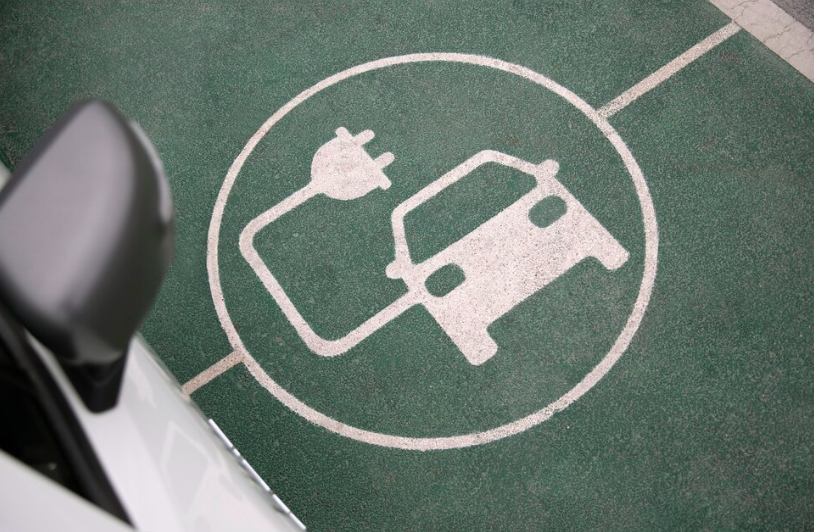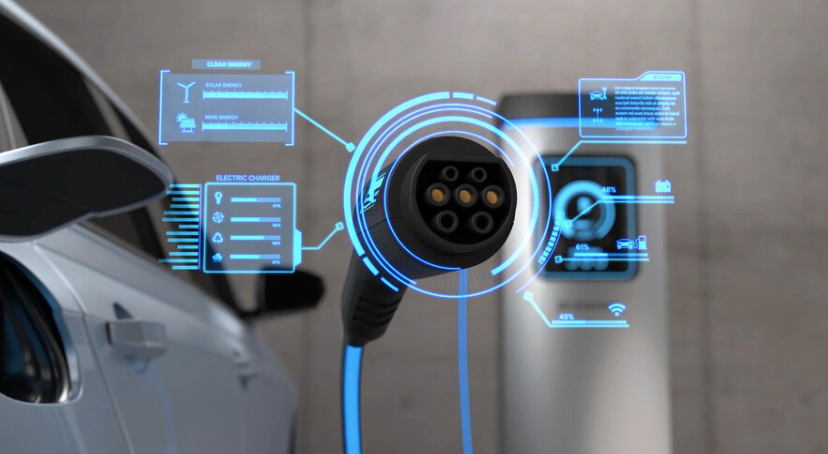Электромобили лучше для окружающей среды? Этот вопрос многие из нас задают себе, размышляя о защите планеты. Такие проблемы, как изменение климата, делают крайне важным сокращение загрязнения окружающей среды автомобилями.
Но разобраться во всей этой информации довольно сложно. Не волнуйтесь! Эта статья вам поможет. Мы поговорим об электромобилях и о том, полезны ли электромобили для окружающей среды. В конце вы получите четкое представление о том, стоит ли вам покупать электромобиль или нет.
Итак, какое же реальное влияние оказывают электромобили? Если вам интересно, читайте дальше!
Электромобили экологичнее автомобилей, работающих на ископаемом топливе?
Как вы все знаете, автомобили, работающие на ископаемом топливе, уже несколько десятилетий являются обычным явлением, но факт остается фактом: они производят вредные выбросы в атмосферу, такие как углекислый газ (CO2), который в значительной степени способствует глобальному потеплению и загрязнению окружающей среды.
С другой стороны, электромобили приводятся в движение электричеством, которое может вырабатываться из возобновляемых источников, таких как солнечная или ветровая энергия. Это означает нулевые выбросы выхлопных газов, а следовательно, минимальное загрязнение воздуха и выбросы парниковых газов.
Но экологические преимущества электромобилей Также это зависит от источника электроэнергии. Если это угольные электростанции, то общее воздействие может быть намного, намного меньше.
Однако исследования показали, что даже с учетом выбросов парниковых газов от производства электроэнергии, выбросы парниковых газов, производимые электромобилем, значительно ниже, чем выбросы, производимые обычным автомобилем с бензиновым двигателем за весь срок его службы.
Таким образом, электромобили не могут быть полностью экологичными, поскольку их характеристики зависят от источника электроэнергии, но они, безусловно, представляют собой более экологичный вариант по сравнению с традиционными транспортными средствами, работающими на ископаемом топливе.
Снижают ли электромобили общий уровень выбросов?
Да, конечно. электромобили Как правило, они снижают общий уровень выбросов по сравнению с традиционными транспортными средствами, работающими на ископаемом топливе.
Хотя электромобили и производят выбросы косвенно, в частности, за счет выработки электроэнергии, они, как правило, выбрасывают значительно меньше парниковых газов и загрязняющих веществ, чем автомобили с бензиновыми или дизельными двигателями.
Сокращение выбросов происходит по нескольким причинам:
- Нулевой уровень выбросов из выхлопной трубы: Электромобили не выбрасывают в атмосферу никаких загрязняющих веществ, таких как углекислый газ (CO2), оксиды азота (NOx), твердые частицы и летучие органические соединения (ЛОС), в отличие от автомобилей с двигателями внутреннего сгорания.
- Эффективность электродвигателей: Электродвигатели в электромобилях также более эффективны в своей работе по сравнению с двигателями внутреннего сгорания. Они, как правило, преобразуют больший процент энергии, содержащейся в батарее, в движение, что означает меньшие потери энергии и меньшие выбросы на пройденный километр.
- Более чистые источники электроэнергии: Со временем все большее распространение получают возобновляемые источники электроэнергии, включая ветровую, солнечную и гидроэнергию. Это еще больше снизит углеродный след, остающийся после жизненного цикла электромобиля.
- Выбросы на протяжении всего жизненного цикла: Действительно, исследования доказали, что по сравнению с обычными автомобилями электромобили имеют более низкие выбросы за весь жизненный цикл, даже если рассматривать их вместе с выбросами от производства батарей и выработки электроэнергии. При этом имеющиеся данные указывают на то, что выбросы за весь жизненный цикл электромобилей будут оставаться ниже по мере увеличения доли возобновляемой энергии в энергосистеме.
Вкратце, хотя электромобили и не являются полностью экологически чистыми, они значительно сокращают выбросы парниковых газов и загрязняющих веществ в атмосферу, тем самым способствуя снижению загрязнения воздуха и изменению климата.
Мы уже говорили о том, как электромобили способствуют снижению выбросов, но что насчет процесса производства автомобилей?
Как уже говорилось выше, электромобили снижают общий уровень выбросов, поскольку не вносят прямого вклада в загрязнение воздуха благодаря используемому источнику энергии. Но как насчет процесса их производства? Давайте обсудим это.
Насколько экологичен процесс производства автомобилей?
На основном этапе процесса производства автомобиля проходят этапы добычи сырья, изготовления компонентов, их сборки, покраски и, наконец, транспортировки.
Выбросы будут присутствовать, и они будут различаться в зависимости от типа и происхождения материалов, используемых в процессе, применяемых технологий, рассматриваемых методов производства, а также масштабов и способа транспортировки.
В исследовании Transport & Environment (T&E) от 2021 года говорится, что средний уровень выбросов за весь жизненный цикл электромобиля среднего размера в США составляет...SВ сумме это составляет на 60-68% меньше, чем у аналогичного бензинового автомобиля. Кроме того, в исследовании показано, что выбросы при производстве электромобиля примерно на 36% выше, чем у бензинового автомобиля, в основном из-за особенностей производства аккумуляторов.
Наибольшее количество энергии и выбросов в окружающую среду потребляет электромобиль, особенно в виде аккумулятора. Аккумулятор изготавливается путем добычи и переработки металлов, таких как литий, кобальт, никель и марганец, что влечет за собой очень высокие экологические и социальные издержки. Процесс обработки и изготовления аккумулятора также требует огромного количества электроэнергии, причем источником энергии может быть как ископаемое топливо, так и возобновляемые источники энергии.
Исследование T&E показало, что производство батарей составляет около 23% от общего объема выбросов за весь жизненный цикл электромобиля в США.S.
Однако следует помнить, что выбросы при производстве электромобилей могут быть снижены за счет использования более эффективных и экологически чистых технологий, закупки сырья в регионах с низким уровнем воздействия на окружающую среду, а также увеличения доли возобновляемой электроэнергии в сети и переработки или повторного использования батарей по истечении срока их службы.
Кроме того, снижение эксплуатационных выбросов на протяжении всего срока службы электромобиля потенциально может компенсировать такие производственные выбросы.
Исследование, проведенное компанией T&E, показывает, что электромобиль в США...SК 2030 году выбросы в течение всего жизненного цикла будут примерно на 75% ниже, чем у автомобиля с бензиновым двигателем.
Таким образом, процесс производства автомобилей не является настолько экологичным для любого типа транспортных средств, но в случае электромобилей он более экологичен, чем в случае обычных автомобилей в США.S. рынок. Электромобиль выбрасывает больше вредных веществ во время производства, чем бензиновый автомобиль, но более низкие эксплуатационные выбросы в течение всего срока службы компенсируют это.
Экологический аспект электромобилей будет еще больше улучшаться благодаря внедрению более устойчивых методов производства и применения электромобилей. Таким образом, единственная большая проблема в индустрии производства электромобилей — это производство батарей. Возможно, вы сейчас задаетесь вопросом, перерабатываются ли эти батареи.
Давайте обсудим это подробнее.
Перерабатываются ли аккумуляторы для электромобилей?
Да, аккумулятор электромобиля подлежит переработке. Как уже было описано ранее, аккумулятор электромобиля состоит из литий-ионных элементов, содержащих различные металлы, такие как литий, кобальт, никель, марганец и алюминий. Эти металлы имеют высокую ценность и легко извлекаются для переработки в различных целях.
Переработка аккумуляторов электромобилей помогает экономить ценные ресурсы, снижает потребность в добыче новых материалов и бережет окружающую среду, предотвращая попадание опасных для здоровья веществ на свалки.
Экологична ли зарядка электромобиля?
Воздействие электромобилей на окружающую среду в значительной степени зависит от способа выработки электроэнергии, которая их питает. Там, где широко используются возобновляемые источники энергии, такие как солнечная, ветровая или гидроэнергия, зарядка электромобилей может привести к значительному сокращению выбросов парниковых газов и загрязнения воздуха.
В других регионах, в том числе в тех частях мира, где производство электроэнергии в значительной степени зависит от угля или природного газа, влияние зарядка электромобиля может быть эквивалентно или немного ниже по сравнению с вождением обычного автомобиля.
Таким образом, экологичность зарядки электромобиля варьируется в зависимости от местности и времени суток.
Заключительные слова
Электромобили значительно превосходят обычные автомобили по воздействию на окружающую среду. Однако у них есть и свои проблемы. Хотя электромобили и приносят с собой преимущества в виде резкого сокращения выбросов и загрязнения воздуха, остаются и спорные моменты.
Производство аккумуляторов и поиск материалов для производства электромобилей по-прежнему вызывают экологические проблемы, требующие решения.




